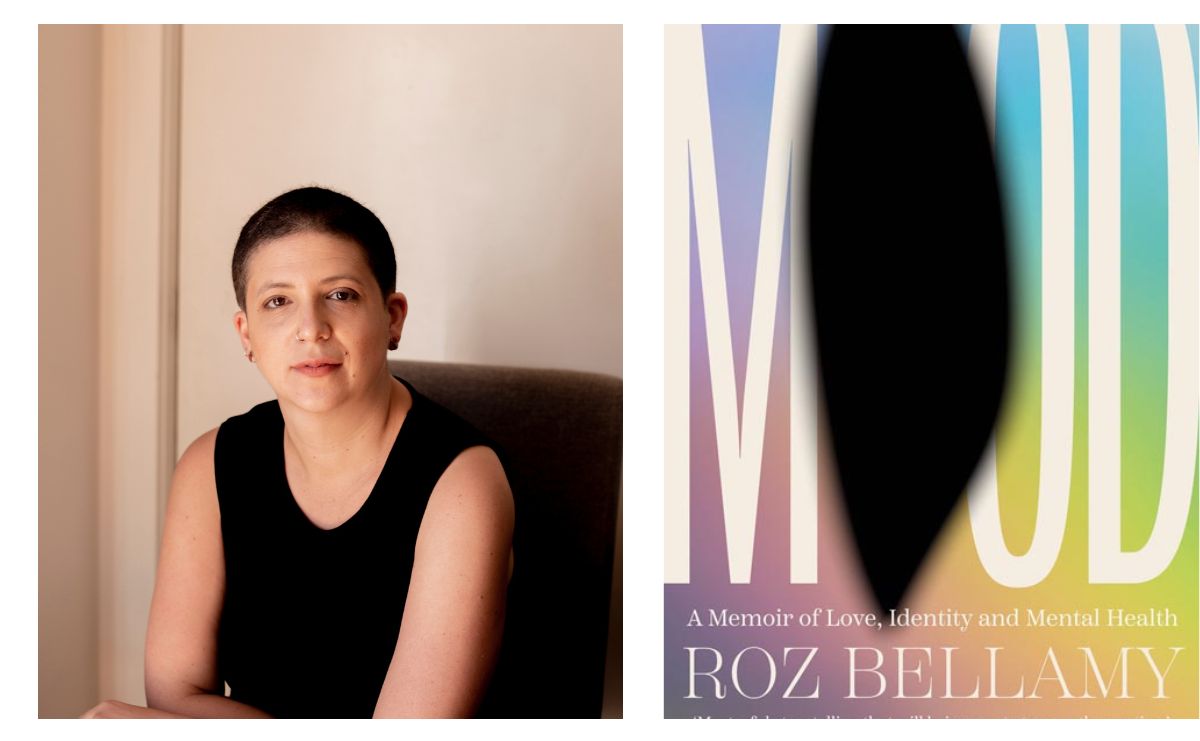Based on its cover (bright colours with a black blob in the centre), Roz Bellamy’s memoir, Mood, may seem like a book with darkness at its heart. But while Bellamy tackles some extremely heavy ideas, the enduring themes of the book are love and resilience.
Though there’s familial love and the gradual development of self-love in Mood, romantic love is the strongest element. It may be tempting, in memoir, to omit the worst parts of oneself, the mistakes, the things that reveal our messiness and imperfections. Instead, Bellamy reveals their moments of anger and cruelty towards their wife as a means of depicting the impacts of their mental illness personally and relationally. Their wife, though often hurt and confused by their behaviour, loves them unconditionally.
They are committed to one another, and to managing Bellamy’s mental health, together. Their story attests that mental illness may challenge a relationship and, instead of breaking it, may actually make it stronger.
Mental illness is not the only challenge they face. Trying to find the right professional supports and dealing with racism understandably exacerbate their anxiety. They experience shocking anti-Semitism in their job as a teacher. Each casual anti-Semitic remark from a student, each Swastika drawn on a desk or a wall and each time Bellamy’s reactions to them are minimised is a timely indictment of the way that racist views and behaviour have been allowed to flourish in this country.
Bellamy reaches out for help from psychologists and psychiatrists with varying degrees of success, until they finally receive diagnoses that fit, an experience that will resonate with anyone who has had to navigate the vast and often inaccessible healthcare system.
They persist, even as they battle suicidal ideation. Writing is their haven during periods of depression and, later, a means of capturing the intensity of their mania. Writing this book was ‘not a cure, but a balm’ for them, and reading it is the same.
Mood reminds audiences with mental illness that they are not alone. It invites readers without mental illness to consider Bellamy’s experience, and that of the 8.6 million people in Australia who have a mental health condition, with empathy and grace.
Read: Book review: Late, Michael Fitzgerald
Mood doesn’t end with a clear resolution, with all of Bellamy’s struggles tied up in a neat little bow. Rather, it reflects their bold hope and slow, undeniable progress. As they put it, ‘I don’t know what things will look like next season or year, but … who cares?’ The joy is in finding out.
Mood, Roz Bellamy
Publisher: Wakefield Press
ISBN: 9781743058701
Pages: 230pp
Publication Date: 1 October 2023
RRP: $34.95






